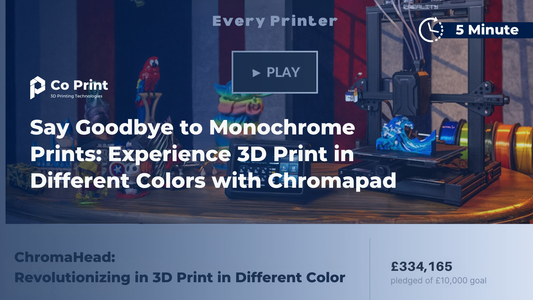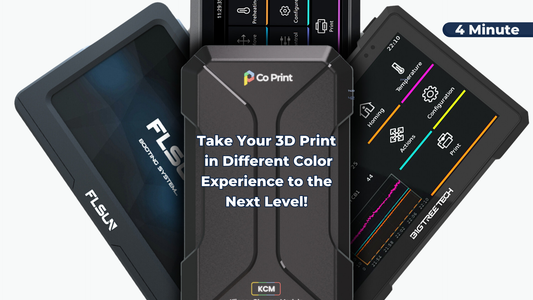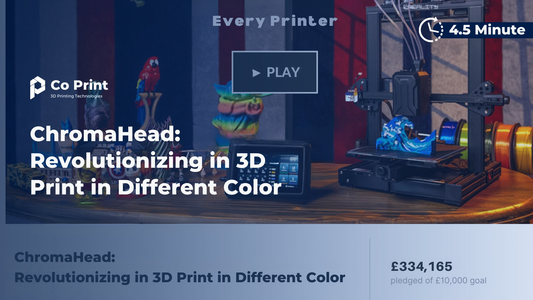Hello valued readers,
In this article, we will discuss the development journey of ChromaHotend, from its inception to its current state.
Co Print has been focused on providing color printing capability to 3D printers since its inception. Our first product, the MFM module, offers an intelligent filament change system by altering the extruder mechanism used in Bowden-type 3D printers. This mechanism enables color printing without the need to change the printer head. Traditionally, each printer uses its own hotend, and differences in the quality of these hotends can lead to issues such as clogging and jamming during printing. Hotend mechanisms play a critical role in the quality of color printing. During a typical color printing process, there can be over 500 color changes. With each color change, the old filament is retracted, and new filament is fed into the hotend. However, if heat dissipation is inadequate or the internal pathways of the hotend are not well-adjusted, clogs can occur during these retraction and feeding processes. This directly affects the print quality.
Based on the experience and knowledge gained from the initial module tests, we have begun working on the hotend design to make color printing more stable in the Seri II product family. During this process, we experimented with various heatsink forms to find the most suitable shape to prevent heat from rising to the upper levels of the hotend. Additionally, we optimized the path of filament progression to minimize clogs, focusing on preventing clogs that may occur during filament changes.

After surpassing 5 different main variations and numerous intermediate model designs, we have reached the final version of the ChromaHotend.
Thanks to our collaboration with Phaetus, the hotends specially designed by Co Print for color printing are manufactured with high-quality production infrastructure standards.
In the latest version of ChromaHotend, we added mounting screw holes directly to the heatsink section to attach the cooling fan, aiming to improve cooling and save space. With a corrugated blade design, we expanded the surface area of the heatsink, allowing for better heat dissipation by spreading it over a larger area and absorbing it more effectively.

Furthermore, by altering the structure of the heater block, we achieved a more compact design, resulting in a dynamic structure that facilitates faster heating and cooling. We also integrated the nozzle design with the barrel to ensure uninterrupted filament flow to the nozzle. This configuration significantly reduced the rate of swelling and clogging of the filament during printing and color changes.
ChromaHotend underwent an intensive testing process lasting two months. Prints using various material types such as PLA, ABS, PETG, TPU, WOOD, PETCF, and PLACF were successfully completed. During long-term print tests, printing operations were carried out smoothly without any clogging, leaking, or deformation. Our specially designed test rig for color printing executed automatic and continuous filament changing processes over 50,000 times without any issues. Additionally, high-flow tests were also completed seamlessly.

Packaging designs, wiring, and additional accessories have been finalized, completing its final version. ChromaHotend is soon to be ready for sale, empowering color printing.

Deliveries of ChromaHotend will commence alongside other products in July.
We are delighted to share the development process of ChromaHotend with you. To purchase and review our products, including ChromaHotend, you can visit our Indiegogo campaign.
For relevant links and details, you can also visit our wiki page.

 Store
Store



